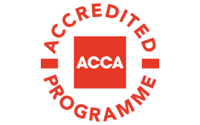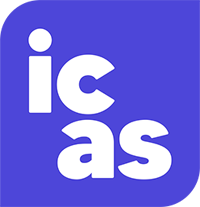
Accounting and Finance - BSc (Hons)
Currently viewing course to start in 2026/27 Entry.
Accredited by the major professional accounting bodies this degree builds knowledge and expertise in financial and management accounting, corporate finance, international accounting and finance issues, data analysis and business technology..
- Level Undergraduate
- Study mode Full Time/Part Time
- Award BSc (Hons)
- Start date September 2026
- Fees View course fees
- Subject
- Location City Centre
This course is:
Available with Professional Placement year
Open to International Students
Overview
The BSc (Honours) Accounting and Finance degree at BCU provides a valuable insight into the worlds of accountancy practice, commerce, industry and finance.
We create graduates who possess a global outlook, with the conceptual and applied knowledge in the fields of accounting and finance that will enable them to make a positive impact on society.
Delivery of the course is flexible and includes a blend of lectures, workshops, field trips and online learning. The modules, which feed into the course are broad and cover key current topics, such as Sustainable Development Goals (SDGs), and help you to appreciate accounting and finance from a range of perspectives. Ultimately, decision making in this field, calls for one to exercise judgement and intuition and this course helps you to strengthen that judgement.
This course has been designed to be accredited by the major professional accounting bodies, including the Association of Chartered Certified Accountants (ACCA), the Institute of Chartered Accountants in England and Wales (ICAEW), the Chartered Institute of Management Accountants (CIMA) and The Institute of Financial Accountants (IFA), offering significant exemptions from their professional qualifications.
What's covered in this course?
This course offers an accounting and finance curriculum that is up to date, vocationally relevant, challenging and reflects the complex and challenging nature of the accounting and business environment.
You will gain expertise in areas including financial and management accounting, corporate finance, international accounting and finance issues, data analysis and business technology. You will have the opportunity to use software relevant to the modern business environment, equipping you with the skills and experience sought by employers.
You will develop scholarly attributes, becoming an independent learner with the ability to critically evaluate data and evidence, draw reasoned conclusions and communicate effectively in a professional manner.
With our practice-based approach to teaching, you will learn from professionally qualified academics with a wealth of industry experience, and research active academics whose research underpins and informs our approach to teaching.
You will be actively supported and encouraged to undertake an additional professional placement year, providing the opportunity to improve your employability skills. Our students have worked for industry leading accountancy practices including PwC and EY, as well as for organisations such as the NHS, IBM and Vodafone.
The international focus of the course is derived through a variety of means including the study of international accounting standards, student body, the teaching team and the use of international teaching materials. Moreover, students can choose to spend a full semester studying their modules overseas at a partner institution.
Professional Placement year
This course offers an optional professional placement year. This allows you to spend a whole year with an employer, following successful completion of your second year, and is a great way to find out more about your chosen career. Some students even return to the same employers after completing their studies.
If you choose to pursue a placement year, you will need to find a suitable placement to complement your chosen area of study. You will be able to draw on the University’s extensive network of local, regional, and national employers, and the support of our Careers teams. If you are able to secure a placement, you can request to be transferred to the placement version of the course.
Please note that fees are payable during your placement year, equivalent to 20% of the total full-time course fee for that year.
Accredited By
This course is accredited by:
BCU is developing and tailoring my professional Accounting and Finance skills, whilst providing me with a CIMA, CIPFA, ICAEW and ACCA accredited degree which is highly demanded by employers. I am able to benefit from modern learning facilities and experience routine practical business group activities which improve my confidence and delivery.
Alhage Baboucarr, Accounting and Finance student
Why Choose Us?
- We have a strong focus on employability and through placement opportunities and our links with local businesses, we aim to ensure you graduate not only with your degree but also with the skills and knowledge needed to embark on your chosen career. This includes external accreditation opportunities with software such as Sage and Excel.
- This course offers you an enormous amount of flexibility to chart your own course and focus on areas of interest. We offer a large and varied selection of modules and assessment types as well as smaller group and experiential learning methods.
- Through the City Trading Room we aim to infuse learning with exposure to real-world experiences. We give you the chance to work on real-life projects using industry-standard software. This offers a unique opportunity for you to gain this invaluable experience during your studies.
- We pride ourselves on being the University for Birmingham and supporting and giving something back to the local business community. We have strong links with local businesses including HSBC, Standard Life Insurance and Goldmann Sachs. These links help us enhance students’ experiences by giving them access to industry experts for guest lectures, exciting placement opportunities and other chances to engage with the business community as a whole.
Open Days
Join us for our next Open Day where you'll be able to learn about this course in detail, chat to students, explore our campus and tour accommodation. Booking isn't open for the next event yet. Register your interest, and we'll let you know as soon as booking goes live.
Next Open Day: Friday 26 June
Entry Requirements
Essential requirements
112 UCAS Tariff points. Learn more about UCAS Tariff points.
If you have a qualification that is not listed, please contact us.
Fees & How to Apply
UK students
Annual and modular tuition fees shown are applicable to the first year of study. The University reserves the right to increase fees for subsequent years of study in line with increases in inflation (capped at 5%) or to reflect changes in Government funding policies or changes agreed by Parliament. View fees for continuing students.
Award: BSc (Hons)
Starting: Sep 2026
- Mode
- Duration
- Fees
- Full Time
- 3 Years
- £9,535 in 2026/27 ✱ Important note for this price
- Apply via UCAS
- Part Time
- 5 Years
- Show fees
- £1590 per 20 credits
- Year 1 - 80 credits
- Year 2 - 80 credits
- Year 3 - 80 credits
- Year 4 - 80 credits
- Year 5 - 40 credits
Fees for Part-time students
This course can be studied on a Part-time study basis. The cost per year of study is based on credit requirements for that year.
(↩Back to price) * The Government is proposing to apply an inflationary increase to regulated tuition fees for 2026/27 and the University is planning on increasing fees to that maximum level once confirmed.
International students
Annual and modular tuition fees shown are applicable to the first year of study. The University reserves the right to increase fees for subsequent years of study in line with increases in inflation (capped at 5%) or to reflect changes in Government funding policies or changes agreed by Parliament. View fees for continuing students.
Award: BSc (Hons)
Starting: Sep 2026
- Mode
- Duration
- Fees
- Full Time
- 3 Years
- £18,570 in 2026/27
Guidance for UK students
UK students applying for most undergraduate degree courses in the UK will need to apply through UCAS.
The Universities and Colleges Admissions Service (UCAS) is a UK organisation responsible for managing applications to university and college.
Applying through UCAS
- Register with UCAS
- Login to UCAS and complete your details
- Select your course and write a personal statement
- Get a reference
- Pay your application fee and submit your application
Guidance for International students
There are three ways to apply:
1) Direct to the University
You will need to complete our International Application Form and Equal Opportunities Form, and submit them together with scan copies of your original academic transcripts and certificates.
2) Through a country representative
Our in-country representatives can help you make your application and apply for a visa. They can also offer advice on travel, living in the UK and studying abroad.
3) Through UCAS
If you are applying for an undergraduate degree or a Higher National Diploma (HND), you can apply through the UK’s Universities and Colleges Admissions Service (UCAS).
You can request a printed form from your school or nearest British Council office. You will be charged for applying through UCAS. Birmingham City University’s UCAS code is B25 BCITY.
Personal statement
The personal statement gives you a crucial opportunity to say why you’re applying and why the institution should accept you.
Here are the three areas you’ll need to address:
- Why do you want to study this course or subject?
Here’s where you explain what makes this course exciting to you. Think about your motivations for studying the course and your future plans. If you’re planning to take a year out, don't forget to give your reasons.
- How have your qualifications and studies helped you to prepare for this course or subject?
This is your chance to show what you’ve learned at school or college. You should include the skills and knowledge you’ve gained from education or training and how this will help you succeed in your chosen course.
- What else have you done to prepare outside of education, and why are these experiences useful?
Not everything you’ve learned comes from the classroom. Life experience counts too! You might want to talk about work experience, employment, or volunteering and how they’ve helped you develop the skills needed for your chosen course or future career.
Worried about Personal Statements?
If you've got no idea where to start or just want to check you're on the right track, we’ve got expert advice and real examples from our students to help you nail your personal statement. You can even download our ultimate personal statement guide for free.
Course in Depth
First Year
In order to complete this course you must successfully complete all the following CORE modules (totalling 120 credits)
Ethical behaviours and professional standards are underpinning elements of business activities and as such important parts of any business based education. The module will cover the fundamental principles of ethics and ethical conflict, giving you practical examples and activities that will encourage you to develop your appreciation and understanding of the content and purpose of the differing frameworks, values and attitudes.
Whilst your degree is a highly valued indicator of achievement and ability for employers, a successful career is also dependent on the development of the right attitudes and behaviours. This is reflected in the findings from a survey undertaken by the Confederation of British Industry (CBI), which identifies that, in addition to qualifications, employers also look for broader skills when recruiting individuals straight from education.
This module is designed to develop your fundamental knowledge and understanding of economic theory at introductory level and to basic finance as well as the financial world within which businesses operate. The Finance aspect of this module includes concepts such as Financial Objectives of Firm, Financial Environment, Time Value of Money, Investment Appraisal, Sources of Short and Long Term Finance, and Cost of Capital, will be introduced. It has many mathematical calculations which include the arithmetic underlying compounding and discounting of financial investments.
This module introduces the preparation of financial statements for a sole trader and develops the financial statements for a simple limited company. This module covers in depth the recording, processing and reporting of business transactions and events and will help you develop knowledge and understanding of the underlying principles and concepts relating to financial accounting and give you the opportunity to learn and use the system of double entry.
This module is designed to develop your fundamental knowledge and understanding of management accounting techniques. It will introduce you to the use of these accounting techniques to support management in their planning, controlling and decision making processes, both within industry and the service sector.
This module is designed to develop your fundamental knowledge and understanding of management accounting techniques. It will introduce you to the use of these accounting techniques to support management in their planning, controlling and decision making processes, both within industry and the service sector.
Second Year
In order to complete this course you must successfully complete the following CORE module (totalling 20 credits):
This module aims to provide you with the sound conceptual understanding and core practical skills necessary to be able to articulate a critical review of the relevant literature applicable to an accounting and/or finance issue. This will enable you to develop the applied skills needed to source, read widely and reference academic literature.
In order to complete this course you must successfully complete 60 credits in semester one from the following indicative list of OPTIONAL modules: 40 credits from the following optional modules:
This module will develop your skills in both the preparation of financial statements for single and group companies (in accordance with the IASBs Conceptual Framework for Financial Reporting and relevant International Financial Reporting Standards) and the analysis and understanding of such financial statements. This module will also help develop your skills in ratio analysis and interpretation.
This module builds on the prior management accounting knowledge and it is assumed that you have a basic understanding of how costs behave, short term decision making and the major accounting systems (absorption and marginal costing). The content will develop your knowledge of budgetary control and then focus on applying your learning to various short term decision-making scenarios.
Or:
The purpose of financial accounting and management accounting is to provide useful information to external and internal users. Whilst financial accounting provides information to external stakeholders, management accounting provides information to satisfy the needs of internal users, however both financial and management accounting are part of the total accounting information system.
AND
20 credits from the following list of optional modules:
Corporate Finance is a rigorous and comprehensive module that is designed to broaden your understanding of the main issues in modern corporate finance. Corporate Finance is concerned with how businesses raise funds and invest those funds to provide a return to investors. This module aims to equip you with the skills and knowledge required by a financial manager to make appropriate investment and financing decisions for a business in a global environment.
In this module, you will study the financial management of entrepreneurial firms (small and medium sized) and venture firms. You will first consider different sources of financing for entrepreneurial firms including bank loans, government funding, angels, venture capital, peer-to-peer financing, on-line banking, and various types of private equity as well as the process of obtaining these sources. It will also include innovative ways of raising funds such as crowdfunding. You will then consider short-term financial planning and cash management, which are crucial to the early stages of an entrepreneurial firm’s development.
In order to complete this course you must also successfully complete 40 credits in semester two from the following indicative list of OPTIONAL modules:
This module will introduce aspects of UK taxation to develop knowledge relating to the tax system applicable to individuals and companies. The module will enable you to develop skills relating to the general principles of taxation, the UK tax framework and regulatory environment. The module will introduce the computational aspects of income tax, national insurance contributions, capital gains tax, inheritance tax in respect of individuals and introduce corporation tax and value added tax for businesses.
This module will guide you to develop your understanding of the technologies of the modern age and how they are transforming the business world and the finance function.
This module focuses on the tools and techniques used by Operation Managers within service, manufacturing, private and public sector institutions to ensure activities are aligned with corporate and market objectives. The module requires you to apply a range of operations management tools and techniques to given scenarios in order to produce a range of verbal, written and numerical solutions focussed on the efficiency, effectiveness and economy of an operation’s processes.
This module introduces you to personal investments and wealth management of individuals. You will learn about the wealth management process and be able to develop investment policy statements for individuals given their unique goals, constraints and circumstances. In addition, you will develop a thorough understanding of the different global tax regimes. You will also develop analytical skills in estate planning and risk management of personal investments.
The financial crisis of 2008 exposed the failings of the conventional financial system and an alternate was sort. Islamic Finance is a type of financing activities that must comply with Islamic law (Sharia). The concept can also refer to the investments that are permissible under Islamic Law.
This module is aimed at improving your professional identity and employability capabilities by undertaking work-based learning such as short-term internships, virtual work experience/live briefs, or volunteering. Alongside the work experience you will be exposed to the skills required to successfully compete for a graduate job and progress within your future career.
This module will help you to have more certainty about your future career path and an awareness of the skills you need for a successful career. You will be able to navigate the graduate recruitment process with more confidence and progress within your chosen career after graduating.
This module, where a programme of study enables it, is open to Business students, who choose to undertake an international Study Abroad mobility experience within their second year of study.
*If you choose to study abroad for a semester you will substitute the BCU semester two modules with the equivalent of 60 credits of study from the host University course. If you are unable to cover all 60 credits with the host University modules you may need to choose and complete the 20 credit BCU Study Abroad option module.
Professional Placement (Optional)
In order to qualify for the award of BSc (Hons) Accounting and Finance with Professional Placement Year you must successfully complete the following module.
This module is designed to provide you with the opportunity to undertake a credit bearing, 40- week Professional Placement as an integral part of your Undergraduate Degree. The purpose of the Professional Placement is to improve your employability skills which will, through the placement experience, allow you to evidence your professional skills, attitudes and behaviours at the point of entry to the postgraduate job market. Furthermore, by completing the Professional Placement, you will be able to develop and enhance your understanding of the professional work environment, relevant to your chosen field of study, and reflect critically on your own professional skills development within the workplace.
Final Year
In order to complete this course you must successfully complete all the following CORE modules (totalling 40 credits):
This module will enable you to develop your organisational leadership and consultancy capabilities and relevant professional skills. You will develop an understanding of how leaders make strategic decisions and how effective strategic leadership can influence organisational behaviour and decision- making.
The Accounting For The Planet module aims to develop your understanding of Corporate Social Responsibility, and introduce you to the areas of Sustainability and Environmental reporting. The module will offer you the opportunity to examine the reporting practices of companies concerning non-financial disclosures, and the opportunity to discuss how businesses are taking greater responsibility in helping to move towards a cleaner and more sustainable planet. The module will also consider the six main elements of integrated reporting.
In order to complete this course you must successfully complete at least 80 credits from the following indicative list of OPTIONAL modules.
This module builds upon your earlier studies of Principles of Taxation at Level 5 and seeks to explore more complex aspects of income tax, national insurance contributions, capital gains tax, corporation tax value added tax and inheritance tax with an emphasis on tax planning.
This module will introduce you to the financial system including the banking system, financial markets and institutions. In addition to exploring the characteristics and functions of financial system, you will be provided with analytic framework that uses economic principles to develop systematic understanding about the determinants of interest rate, the role of monetary policy and bank risk management.
This module will introduce you to assurance engagements with focus on external and internal audit. You will explore the nature and purpose of these engagements as well as the role of assurance to stakeholders and the capital markets including the increasing pressure for public accountability. You will look to understanding the overall regulatory framework and governance for companies and auditors.
This module will contribute to the intellectual and personal development of students to the level of an honours graduate in the Accountancy field by offering a body of current theoretical knowledge and technical skills relevant to the advanced study of financial reporting at Level 6.
You will explore the concept of planning an operational change within an organisation through the use of project management tools and techniques. You will be introduced to industry recognised project management tools and techniques.
This module is designed to further develop knowledge and skills in the application of management accounting techniques. Building on the knowledge gained from levels 4 and 5, this module investigates how relevant strategic management accounting techniques, both quantitative and qualitative, can assist managers to control the performance of their business. Strategic management accounting is presented as a service function; a means to an end rather than an end itself. The aims are for you to understand and critically analyse the techniques, to be able to apply them to business situations, to be aware of their limitations, and make appropriate recommendations.
This module will help students in developing knowledge and understanding of the underlying principles and concepts relating to corporate finance and give the theoretical underpinnings of financial management in corporates. The course gives a broader understanding of the philosophies behind the financial management decisions, capital structure, dividend policies and current developments in and modern theories of finance. The module will enable students to evaluate research and synthesise information about corporate financial issues and problems, ability to solve quantitative problems, presentation of ideas, and participation in debates.
This module introduces you to the financial systems, products and services offered by Islamic financial institutions in the Islamic Banking and insurance (takaful) industries. The module will discuss the product features and mechanisms that are specialised due to the Sharia compliance aspect. It highlights the pertinent risk management issues relevant to the financial institutions involved in Islamic financial activities. You will understand how schools of Islamic jurisprudence permit some forms of transactions, but exclude others, through principles such as the requirement of risk sharing within contracts, the avoidance of excessive risk and the use of real contracts.
This module will introduce you to the not for profit environment including the charity and public sectors. In addition to exploring the differences in structure, financing, governance, management and performance measurement of organisations within the not for profit environment, you will review and evaluate the challenges associated with accounting for not for profits and the implications on their operations.
Financial technology (Fintech) integrate technologies like artificial intelligence (AI), blockchain and data science into traditional financial services to make them safer, faster and more efficient. It is one of the fastest-growing industries, with companies innovating in almost every area of finance from mobile banking and insurance to cryptocurrency and investment apps, Fintech has broad applications.
The aim of this module is to provide insight into the methodological foundations of business research, which will enable you to conduct a substantial piece of disciplinary research.
The aim of this module is to provide a framework for you to undertake a substantial piece of disciplinary-relevant research. It is founded upon BCU’s teaching and learning philosophy which integrates theory and practice.
Download course specification
Download nowTrips and visits
You will have the opportunity to visit a range of businesses, gaining key industry insight and getting a focus on how businesses operate. In recent years, we have visited JCB, Morgan Motor Company and Cadbury World.
Professional alignment
Our Accounting and Finance programmes are aligned to a range of professional bodies. The main benefit of this is that you will may be exempt from a range of professional body exams when it comes to graduating. It also ensures you’re fully prepared for the world of work, undertaking tasks that’ll stand you in good stead for your future.
Exemptions available will depend upon modules selected in the second and further years of study and are at the discretion of the awarding professional body.
This course is aligned to the following organisations:

Association of Chartered Certified Accountants (ACCA)
ACCA is the Association of Chartered Certified Accountants. They are a thriving global community of 241,000 members and 542,000 future members based in 178 countries that upholds the highest professional and ethical values.
ACCA provides the skills and resources to help forward-thinking finance professionals thrive in the public sector.

Chartered Institute of Management Accountants
Accredited by the Chartered Institute of Management Accountants (CIMA) for the purpose of exemption from some professional examinations through the Accredited degree accelerated route. This accreditation is dependent on particular modules you choose.

Institute of Chartered Accountants in England and Wales
Accredited by the Institute of Chartered Accountants in England and Wales for the purpose of exemption from some professional examinations.

The Institute of Financial Accountants
Accredited by The Institute of Financial Accountants (IFA) for the purpose of exemption from some professional examinations.

ICAS
A global professional membership organisation and business network for Chartered Accountants.
Employability
Enhancing employability skills
Your course will prepare and equip you for a career in accountancy, finance, management or business, by relating your studies to the latest practice-based business developments.
Throughout the course, we have regular visits from professional bodies such as the ICAEW, CIMA, ACCA and the IFA. These visits help ensure that you are learning the exact skills organisations and regulator bodies are looking for.
You will also have the opportunity to attain the Microsoft Office Specialist – Excel qualification, enhancing your employability prospects.
Placements
In order to apply and enhance the skills you learn from the course, you will have the option to undertake a year-long work placement in the UK or overseas. Shorter-term work placements, voluntary work and internships will also be available.
In the past, students have benefited from our partnerships with the NHS, Volkswagen and Bentley.
Facilities & Staff




Our Facilities
We are constantly investing in our estate and have spent £500 million on new learning facilities.
The Curzon Building
This course is based in the Curzon Building, a £63 million development, located on our City Centre campus.
The building offers students a unique social learning space, including a dedicated student hub incorporating student support services, in the heart of Birmingham’s Eastside development.
The Business floors house an extensive number of IT facilities, breakout areas, and specialised rooms. The Marketing Link Agency is designed to replicate a modern marketing firm, allowing students to get real-life experience of working in the marketing sector. There is also the City Trading Room, which features state of the art stock market tracking equipment, keeping you up to date with all the financial comings and goings of the London Stock Exchange and Wall Street.
The Curzon building is also conveniently close to Birmingham’s business and financial centre, allowing for strong links between your studies and the real world.
The Curzon Building also features:
- An impressive library with access to over 65 million full text items and stunning views of Eastside City Park
- Your Students’ Union which is located in a beautifully restored 19th century pub, The Eagle and Ball
- A modern 300-seat food court with space to study and socialise
- Accessible IT facilities with full Office365 for all students for free
- Shared facilities with the wider campus including the Parkside Building and Millennium Point
Our staff
Samantha Roberts
Head of Department of Accountancy, Finance and Economics
Samantha Roberts holds an honours degree in Accounting and a Master’s degree in Accounting and Financial Management. She is ACMA, CGMA qualified and after a 15 year career in the banking and finance sector Samantha moved into higher education.
More about SamanthaMargaret Saunders
Senior Teaching Fellow / Academic Lead in Teaching Excellence and the Student Experience
Margaret Saunders is a qualified management accountant who gained substantial experience in industry prior to making the transition into education. She is currently the Academic Lead for Teaching Excellence and the Student Experience in addition to being a Senior Teaching Fellow in Management Accounting.
More about MargaretShaista Mukadam
Senior Lecturer
After completion of her Chartered Accountancy Professional Qualification from India, Shaista Mukadam worked and audited in many of the multi-national companies in India. She retrained as a lecturer, and now teaches on accounting modules at Birmingham City University. In December 2021, Shaista was presented with Womani Award for 2021 by...
More about ShaistaKulvinder Singh
Associate Professor in Accounting
Kulvinder is an Associate Professor in Accounting. He is part of the course leadership team across the undergraduate and postgraduate accounting suite of courses. He is the college subject lead for Accounting, and works closely with the course leaders across the portfolio of courses.
More about KulvinderDr Kaveh Asiaei
Senior Lecturer in Accounting
Kaveh joined BCU in July 2024 as a senior lecturer in Accounting. He has over a decade of experience in higher education, having previously taught at Monash University as a Senior Lecturer, where he was recognized as an award-winning educator for three consecutive years for developing and leading modules. Kaveh has consistently received outstanding...
More about Kaveh





